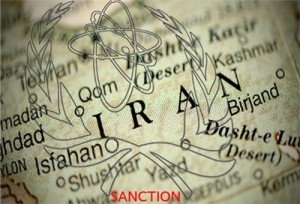 US sanctions on nations such as�Iran�and Cuba are making it harder for students there to access online education, as US regulators have decided that US companies and universities need special permission to make online courses available to sanctioned nations.
US sanctions on nations such as�Iran�and Cuba are making it harder for students there to access online education, as US regulators have decided that US companies and universities need special permission to make online courses available to sanctioned nations.Coursera, a major provider of�massive open online courses�or Moocs, has begun blocking access to its site for users in Iran, Sudan and Cuba while it works with US regulators to secure an exception from the nation�s trade sanctions on those nations.
�It is with deep regret that we have had to make a change to our accessibility in some countries,� the company said in a�statement�on Tuesday.
As of this week, the group said, students accessing the site from computers in those three countries will not be able to log on to the site or create new accounts.
The newness of such online course platforms has led to some confusion and ambiguity as their regulators and providers catch up with technology, said Tena Herlihy, general counsel for edX, a similar Mooc program founded by Harvard and MIT.
�This is new territory,� she said. �Moocs have come up in the last year and a half, and we don�t know the regulatory scheme.�
EdX last year applied for and received a licence allowing it to operate in Iran and Cuba. It is still waiting for a licence for Sudan, said Ms Herlihy, but has not blocked access to edX there in the meantime.
The popularity of Moocs has taken off as they allow anyone with a computer to access top-tier university lectures, readings and homework assignments on subjects from art history to zoology. EdX alone has 1.8m students.
Their growth has sparked questions, however, not just about sanctions but also about how many students follow through on the courses they enrol in and the quality of online versus in-person study.
With regards to sanctions, both Moocs and other technology companies face legal ambiguities when distributing their products overseas, said Harry Clark, a partner with law firm Orrick specialising in trade restrictions.
The challenge, he said, is determining whether a company is offering a service, which would be restricted, or merely providing access to information such as an online newspaper or search engine, which is allowed. The state department and the Treasury Department�s Office of Foreign Asset Control, which manage sanctions, have decided to classify Moocs as services, according to edX and Coursera�s recently statement.
There is a possibility that Coursera could reopen its courses if it gets permission from regulators to do, as edX has been able to do. Although Syria is also under US sanctions, they do not affect Moocs, the two groups said.
In the meantime, students can skirt the ban, pointed out one of Coursera�s professors in a mass email to students of a course he runs on Muslim constitutional law.
�I invite those students affected to use services such as hola.org or VPN routers to circumvent these restrictions,� wrote the professor.
VPNs, or virtual private networks, obscure the location of a computer and are frequently used by people in nations like China or the Middle East to evade internet censorship there.
By The Financial Times�
The Iran Project is not responsible for the content of quoted articles.










